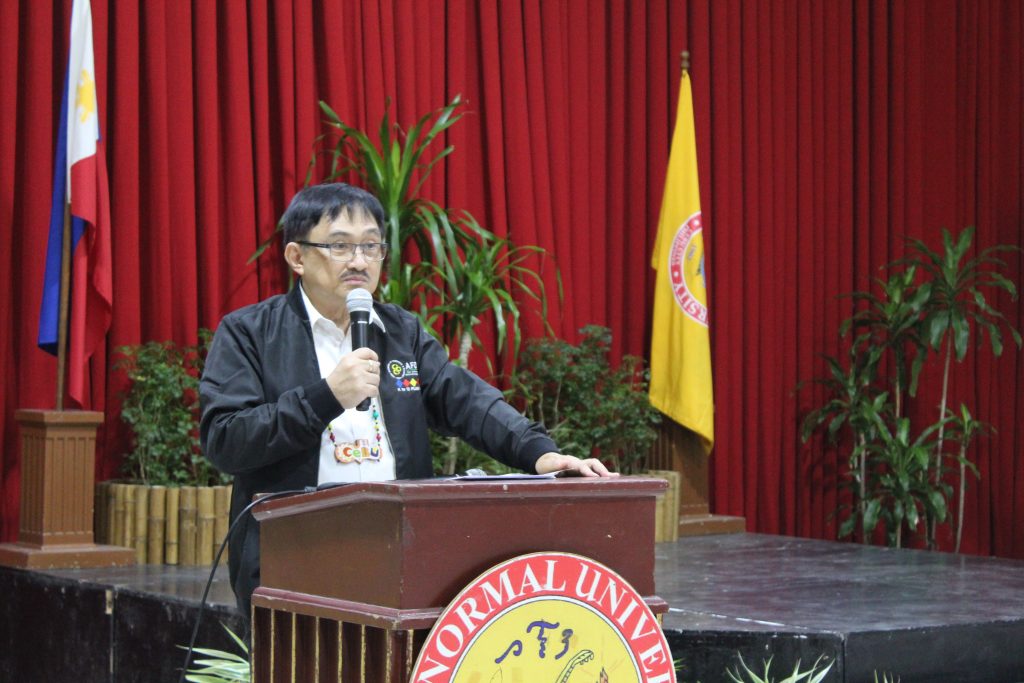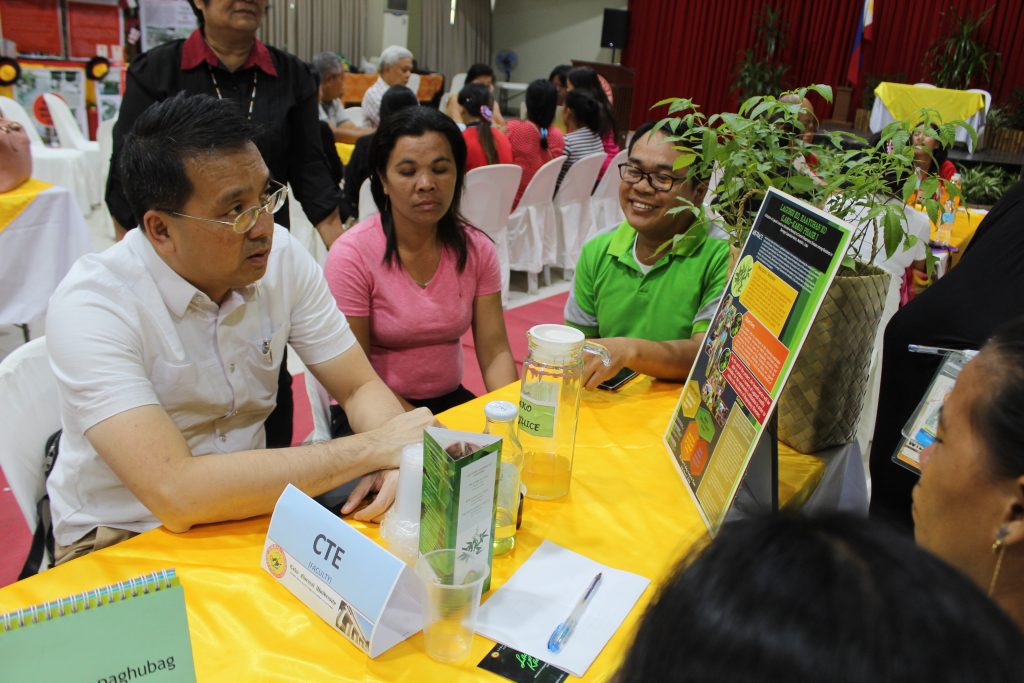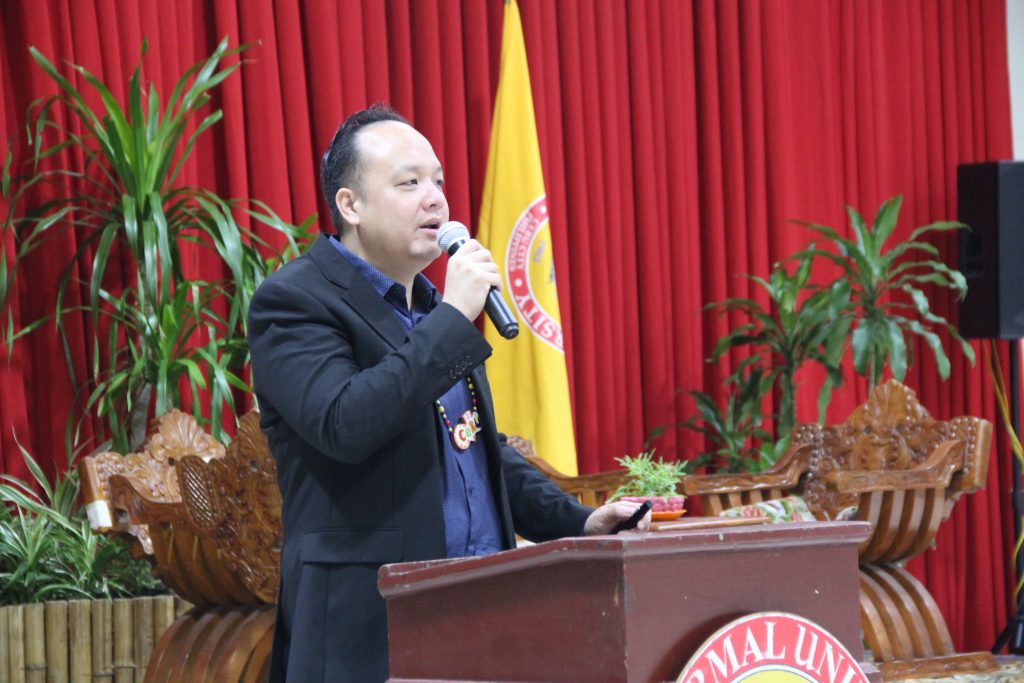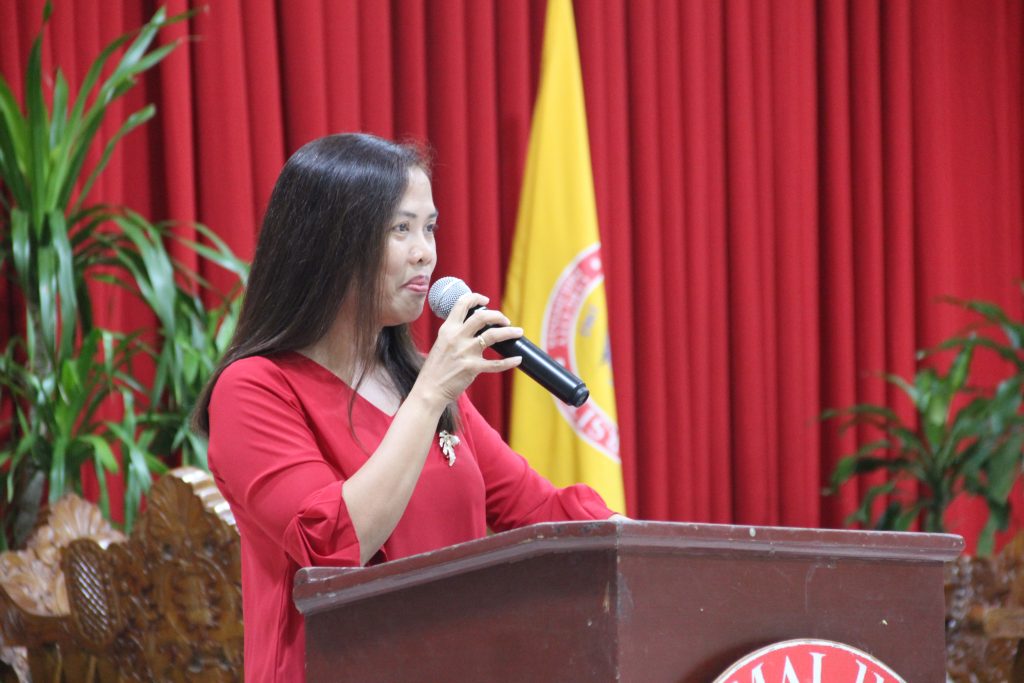Cebu Normal University (CNU) through its External Affairs and International Linkages (EAIL) office held its Extension Business Week to converge the academe, industry, and its community partners.
The two day event took place last October 25 and 26, 2019 at the CNU Teaching Arts Centrum (TAC) building.
The first day was attended by community partners of the University from different barangays and undergraduate students, while the second day was participated in by graduate students.

Virgilio Espeleta, Cebu Chamber of Commerce and Industry (CCCI) President, graced the event as a keynote speaker and talked about Industry 4.0: The Academe and Industry Connectivity.
He shared that company-based learning is the key to address the challenging needs of the 4th industrial revolution in line with the idea of German-Philippine Chamber of Commerce and Industry (GPCCI) Inc.
Learning should be continuous and should not stop after formal education, he said. Further, it is crucial for owners and employees in the industry to upscale themselves, he added. He also emphasized the strengthening of technical and vocational education and training (TVET) in schools.

Exhibits from different community extension and livelihood projects done by CNU faculty extensionists also took place where community partners were able to share and sell their products on display.
Project Mentoring occurred afterwards where mentors in the persons of Hon. Ma. Teresa Chan, Donato Michael Busa, Prudencio Gesta, and Benedict Que assessed the different community partners’ project outcomes and deliverables.

Hon. Raul Remulta, Barangay Captain of Brgy. Caputatan Norte, Medellin said it is good that the University has conducted the event as it has given them the chance to share the community extension project of the College of Nursing (CN) professors entitled, “Lagundi ko, Kaayuhan ko” – the utilization of lagundi leaves as alternative remedy to control respiratory illnesses among residents of their barangay – to Que as their mentor who evaluated and shared entrepreneurial ideas on the project.
“Daghan kaayo’ng nakuha namo nga idea mahitungod sa pagsugod og negosyo (We gained many ideas on how to start a business),” Remulta said.
Maricel Rivera, Instructor from CNU Medellin said it is her first time to be involved in a community extension project and it was not easy at first.
“The process is never easy from creating the proposal all the way to implementing and monitoring, and evaluating the project,” but “when you see the beneficiaries, they are happy and you can feel that they really appreciate what you do then it’s really rewarding,” she said.
Their community extension project is entitled “Germs Alis, Income Kay Bilis” that makes use of germicide in making detergent powder and dishwashing liquid that aims to alleviate poverty conditions in Barangay Antipolo, Medellin.
According to Rivera, it was the barangay who first expressed their intention to partner with the school before educators immersed themselves in the community.
A community needs assessment was also conducted before proponents came up with a proposal for the community extension project using the budget from EAIL Office.

Stanley Go, Mandaue Chamber of Commerce and Industry (MCCI) President also graced the event on its second day and talked about his personal and work experience about branding.
He encouraged the attendees to focus on establishing company’s image – the quality of product and people, and the increase in sales and market share will just follow.
Afterwards, podium presentations of three extension projects from CN, College of Teacher Education (CTE), and CNU Balamban who have full-blown evaluation reports followed. Josephine Belotindos, Dr. Elias Tecson, and Dr. Gregorio Cyrus Elejorde, were invited as reactors who were also present even during the project conceptualization of faculty members.
Naila Beltran, Director for External Affairs and International Linkages said that the gathering is a convergence of the academe, the industry, and partner communities.
She said that the occasion is a way of presenting projects done for the welfare of the community and a creative way of monitoring them. It is also an opportunity for schools’ community partners to engage and be mentored by those in the business industry.
Beltran said that there are a total of 47 projects in the university at present which are implemented in deprived, depressed, and underserved communities.

Dr. Filomena Dayagbil, CNU President thanked all the people behind the success of the event. She also acknowledged the faculty who exhibited how multifaceted they are as instructors, researchers, and extensionists.
She said that extension is one deliverable of the University that promotes inclusive growth for its adoptive communities. Dayagbil also said that the development of essential and soft skills like collaboration, communication, and problem-solving brought about the success of extension projects.
“The essence is that we build bridges and when they know how to build bridges, then we collapse and allow our stakeholders to build bridges of their own,” Dayagbil said pertaining to empowering the community partners.
“Rest if you must, but don’t you quit,” Dayagbil added to encourage faculty members to do more in research, publication, extension, and instruction.
“Yes, ‘more pa gyud, more pa gyud’ but at the end also of the things that you are doing, try to relax, wallow in the thought that you have helped people, that you have lifted the lives of people,” she said. (JDF)
